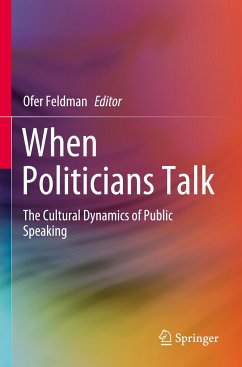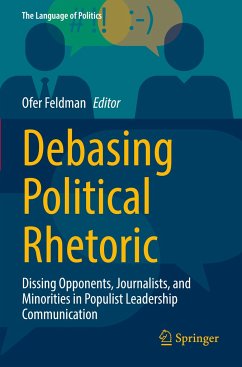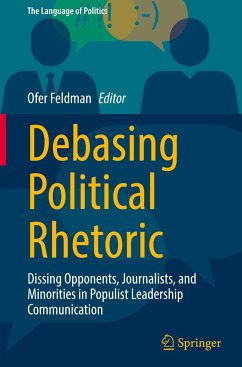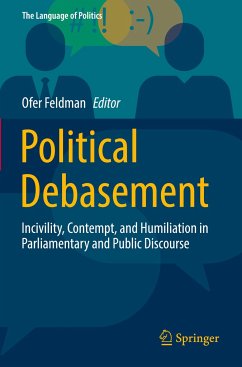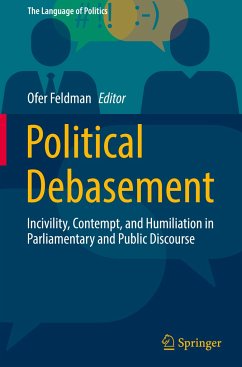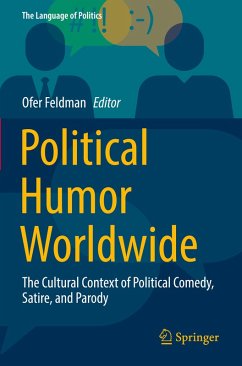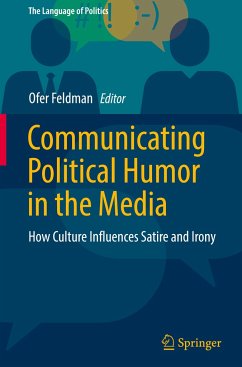
When Politicians Talk
The Cultural Dynamics of Public Speaking
Herausgegeben: Feldman, Ofer

PAYBACK Punkte
49 °P sammeln!
This book details the relationship between culture and the language used by public figures, including politicians, political candidates, and government officials, in the broad context of political behavior and communication. Employing a variety of perspectives, theoretical, conceptual, methodological, and analytical approaches, chapters focus specifically on the question of HOW cultural factors (such as religion, history, economy, majority/minority relations, social structure, and values) shape the content, nature, and characteristics of the rhetoric that public figures utilize in selected cou...
This book details the relationship between culture and the language used by public figures, including politicians, political candidates, and government officials, in the broad context of political behavior and communication. Employing a variety of perspectives, theoretical, conceptual, methodological, and analytical approaches, chapters focus specifically on the question of HOW cultural factors (such as religion, history, economy, majority/minority relations, social structure, and values) shape the content, nature, and characteristics of the rhetoric that public figures utilize in selected countries in the Americas, Europe, Asia, Oceania, and the Middle East.
The chapters enable comparison of the cultural effects on the different structures, styles, and contents of public speaking in societies from West to East. That is, of WHAT leaders say, HOW they say it (e.g., degree of openness, directness, usage of metaphors and slogans, xenophobic and racial expressions), under WHICH specific circumstances (e.g., National Days addresses, national or local assemblies' debates, during election campaigns appeals, press conferences' briefings, and in international meetings' speeches), and for WHAT specific audiences (e.g., supporters and voters, media representatives, or the global community).
The chapters enable comparison of the cultural effects on the different structures, styles, and contents of public speaking in societies from West to East. That is, of WHAT leaders say, HOW they say it (e.g., degree of openness, directness, usage of metaphors and slogans, xenophobic and racial expressions), under WHICH specific circumstances (e.g., National Days addresses, national or local assemblies' debates, during election campaigns appeals, press conferences' briefings, and in international meetings' speeches), and for WHAT specific audiences (e.g., supporters and voters, media representatives, or the global community).





